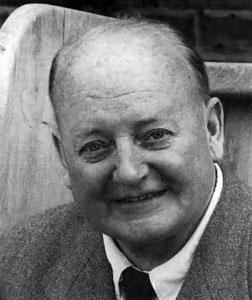A Quote by Charles Sanders Peirce
The real, then, is that which, sooner or later, information and reasoning would finally result in, and which is therefore independent of the vagaries of me and you. Thus, the very origin of the conception of reality shows that this conception essentially involves the notion of a COMMUNITY, without definite limits, and capable of a definite increase of knowledge.
Related Quotes
Philosophy is to be studied, not for the sake of any definite answers to its questions, since no definite answers can, as a rule, be known to be true, but rather for the sake of the questions themselves; because these questions enlarge our conception of what is possible, enrich our intellectual imagination and diminish the dogmatic assurance which closes the mind against speculation; but above all because, through the greatness of the universe which philosophy contemplates, the mind is also rendered great, and becomes capable of that union with the universe which constitutes its highest good.
All knowledge or form conception is evoked through the medium of the eye, either in response to disturbances directly received on the retina or to their fainter secondary effects and reverberations. Other sense organs can only call forth feelings which have no reality of existence and of which no conception can be formed.
Philosophy, like science, consists of theories or insights arrived at as a result of systemic reflection or reasoning in regard to the data of experience. It involves, therefore, the analysis of experience and the synthesis of the results of analysis into a comprehensive or unitary conception. Philosophy seeks a totality and harmony of reasoned insight into the nature and meaning of all the principal aspects of reality.
There are, I think, four distinct types of weird story: one expressing a mood or feeling, another expressing a pictorial conception, a third expressing a general situation, condition, legend or intellectual conception, and a fourth explaining a definite tableau or specific dramatic situation or climax.
While it is possible for intelligence to increase the range of benevolent impulse, and thus prompt a human being to consider the needs and rights of other than those to whom he is bound by organic and physical relationship, there are definite limits in the capacity of ordinary mortals which makes it impossible for them to grant to others what they claim for themselves.
The conception that government should be guided by majority opinion makes sense only if that opinion is independent of government. The ideal of democracy rests on the belief that the view which will direct government emerges from an independent and spontaneous process. It requires, therefore, the existence of a large sphere independent of majority control in which the opinions of the individuals are formed.
The Reader may here observe the Force of Numbers, which can be successfully applied, even to those things, which one would imagine are subject to no Rules. There are very few things which we know, which are not capable of being reduc'd to a Mathematical Reasoning, and when they cannot, it's a sign our Knowledge of them is very small and confus'd; and where a mathematical reasoning can be had, it's as great folly to make use of any other, as to grope for a thing in the dark when you have a Candle standing by you.
The point is that we are all capable of believing things which we know to be untrue, and then, when we are finally proved wrong, impudently twisting the facts so as to show that we were right. Intellectually, it is possible to carry on this process for an indefinite time: the only check on it is that sooner or later a false belief bumps up against solid reality, usually on a battlefield.
The composer reveals the innermost nature of the world, and expresses the profoundest wisdom in a language that his reasoning faculty does not understand, just as a magnetic somnambulist gives information about things of which she has no conception when she is awake. Therefore in the composer, more than in any other artist, the man is entirely separate and distinct from the artist.
For many ages it has been allowed by sensible men, Nihil est in intellectu quod non fuit prius in sensu: That is, There is nothing in the understanding which was not first perceived by some of the senses. All the knowledge which we naturally have is originally derived from our senses. And therefore those who want any sense cannot have the least knowledge or idea of the objects of that sense; as they that never had sight have not the least knowledge or conception of light or colours.








































